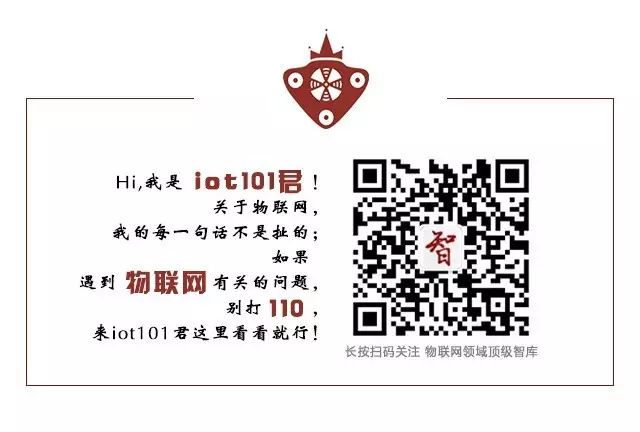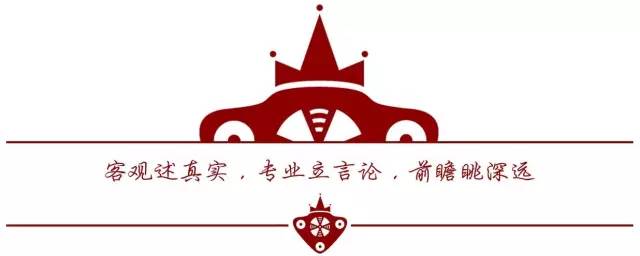
Source: 2017 World Internet of Things Conference
Compiled and published by the Internet of Things Think Tank
Please indicate the source and origin when reprinting
—— [Introduction] ——
The development of big data in the future of humanity relies on three main elements: the Internet of Things, big computing, and cloud data.
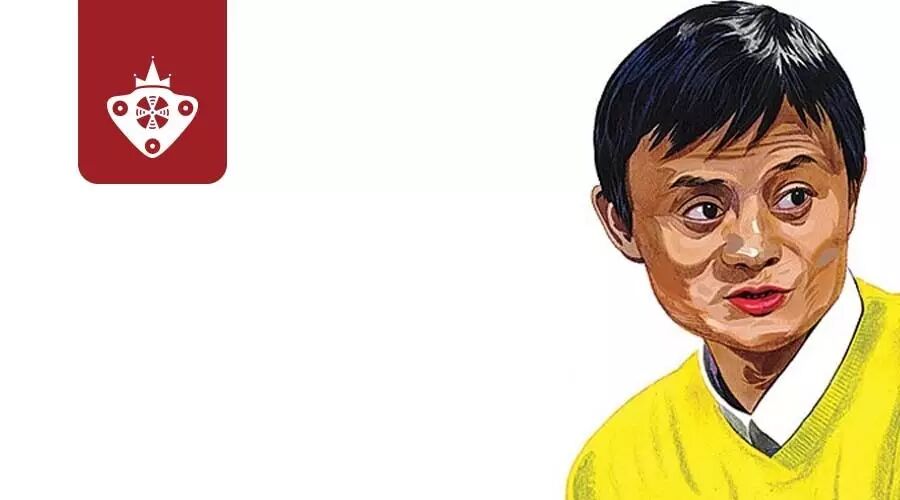
The following content is from Jack Ma’s speech at the 2017 World Internet of Things Expo, compiled by the Internet of Things Think Tank, with some edits.
Hello, leaders and experts:
Thank you very much for coming to listen to our speech today. I have just heard many leaders, experts, scholars, and entrepreneurs share their insights, which are very macro and strategic. Sitting here, I feel inspired and have gained a lot. Now, I would like to share some thoughts from the perspective of our business.
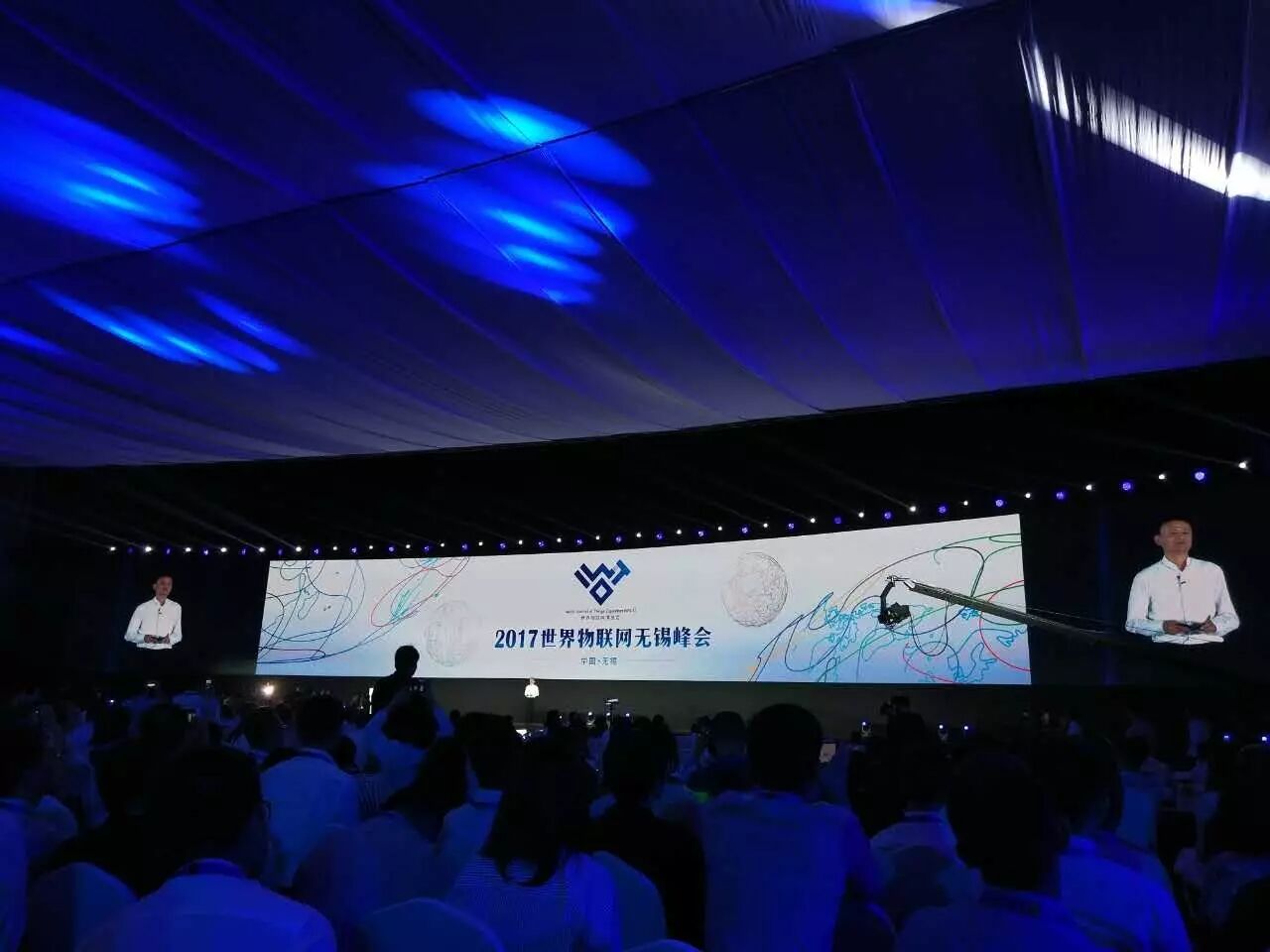
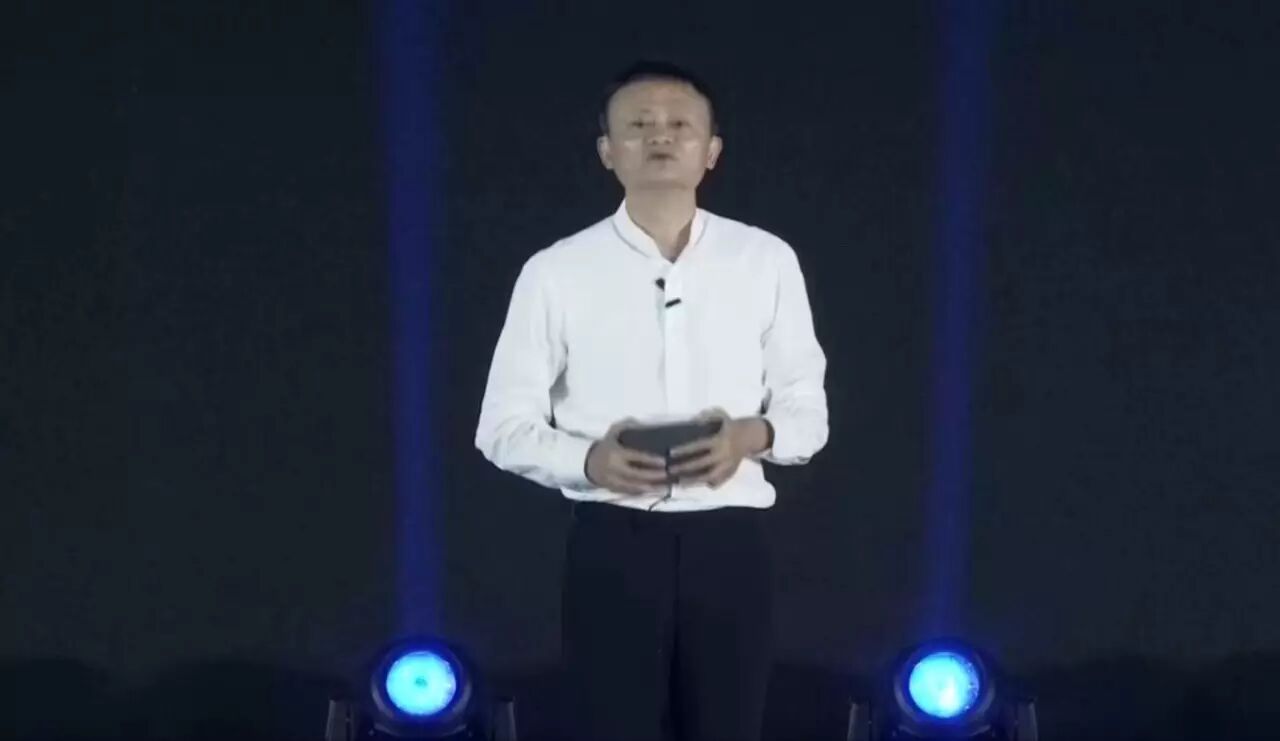
Image: Jack Ma at the World Internet of Things Expo
I believe that whether each of us will succeed or be happy depends on how we view problems. Different perspectives, depths, and breadths can lead to more opportunities.
Alibaba has celebrated its eighteenth anniversary. Alibaba’s success today is not just a result of today’s efforts, but of decisions made eighteen years ago. The you of eighteen years from now, or twenty years from now, is not determined by the you of twenty years from now, but by the thoughts you have today. A few days ago, I heard someone say something very insightful. At Alibaba’s anniversary celebration the day before yesterday, I shared it with all my colleagues. Most people believe because they see, while a few believe and then see. When we look at problems, we are those who believe in the future, feeling as if we can see it, believing that these things will definitely happen. However, most people may not feel the same way.
In 2009, Jiangsu began exploring the Internet of Things, when people still did not know what it was; it was called the National Sensor Network back then. Also in 2009, Alibaba launched Alibaba Cloud and cloud computing. No one could predict what cloud computing would look like in the future, but we believed it was the future, a trend we both insisted on for eight years. When Jiangsu started exploring, I believe everyone thought it was just a concept. When Alibaba was exploring cloud computing, we also thought it was a concept. Today, there are more and more concepts, such as cloud computing, big data, smart logistics, and IoT. All these concepts and terms actually point to one issue: humanity is moving towards a common direction.
I believe that whether it is artificial intelligence, the Internet of Things, big data, or big computing, all these discussions revolve around the same issue, just like in the last century, some people emphasized the importance of cars, while others emphasized the importance of oil. In fact, everyone is heading in the same direction: the arrival of the energy era. The discussions we have are ultimately witnessing humanity truly entering the data era. Jiangsu follows a reform route, while Zhejiang follows an open route. I believe that the combination of Jiangsu and Zhejiang is the most promising, as the integration of the Internet of Things, cloud computing, and big data is the true future, full of hope.
The essence of the Internet of Things must first be an intelligent network. Without an intelligent Internet, we consider it a vegetative state. In fact, electric meters support electricity, but without intelligent electric meters, they can only collect fees. Every traffic intersection has a monitor, and all these monitors are connected. If they are not made intelligent, their maximum function will only be to issue fines.
Therefore, the core is not the objects, but the connections; even more crucial is to make these connections intelligent. The purpose of intelligence is not to make machines like humans, but to enable machines to learn like humans. I believe that when we consider many issues, we often worry too much about the future—how will machines compete with humans? I think machines and humans will not compete. If you design the future route well from today, you may encounter problems.
Machines must be like machines, humans are wise, machines are intelligent, and animals have instincts. Each should follow its unique path. If machines become like humans, I think there will be many problems; if humans become like machines, there will also be many problems.
In the last century, during the industrial era, people treated humans like machines. In the future era, machines will not become humans, but what we should do is make machines more like machines and humans more like humans. When we talk about humans and machines, I believe humans should have great confidence. People have been developing; long ago, they dreamed of flying, hoping to grow wings, but later they could fly, so airplanes were invented. Humans wanted to run fast; after the invention of cars, they hoped cars could walk on two legs like humans, but cars can never run fast. In the past two years, the most discussed topic was AlphaGo, where machines played Go against humans. After winning, people felt very frustrated. If you feel frustrated because of these things, I believe there will be even more frustrations ahead, as humans will definitely not win against machines. As long as it is programmable and not clearly defined, machines will definitely surpass humans.
Humans are very smart but forget that machines are created by humans. When humans first invented machines, they realized that machines would have greater power than humans, and machines would definitely run faster and farther than humans. When computers appeared, humans should have foreseen that their intelligence would not surpass that of computers, as they calculate faster than humans. Go was created for human enjoyment; if you let humans play Go, it is like letting humans race against cars—who runs faster? It is meaningless. If you feel frustrated because of this, there will be more frustrations in the future.
Machines should do many things that humans cannot do; that is the essence. It is not a big deal for machines to do what humans cannot do. My handwriting is not good, but I think it has character, while a computer’s writing, no matter how good, is not worth much. Regardless of the relationship between humans and machines, no matter how well machines perform, I still hope that humans can create a chair rather than machines creating a chair.
Moreover, the development of big data in the future of humanity relies on three main elements: the Internet of Things, big computing, and cloud data. Because of big data, data will become the most important production material.
We often talk about big data, which encompasses two points: big, not meaning quantity, but big computing; big computing, cloud data. Therefore, data will become the primary means of survival. Every time there is a revolution in energy and technology, the first technological revolution was dominated by coal. The second was oil and electricity, driven by innovation. This time, data will become the most important production material.
The second point is that cloud computing and computing power will become a powerful productive force.
The third point is that the Internet itself is a production relationship. If we do not think about the Internet in relation to production relationships, I believe the problems will only increase. The Internet is the Internet of the whole society, not just that of a single company.
At our company’s conference last year, we proposed new retail, new manufacturing, new finance, new technology, and new energy. There has been much debate about these five new concepts. What does new mean? We believe that new retail must redefine retail, new manufacturing must redefine manufacturing, and new finance must redefine finance. Many things require new thinking. We are not language experts, so we cannot find suitable words to interpret this newness. Now everyone feels that the retail industry is changing very rapidly and dramatically. We proposed new retail not just today; over a decade ago, we were doing Taobao, Tmall, and e-commerce. When countless industries began to impact the retail industry, everyone was indifferent. It was not an overnight success; at that time, no one would shop online, and no one considered it a significant matter—believing that the joy of online shopping often exceeded that of offline shopping. But ten years later, this world has indeed arrived. People buy things on Taobao, utilizing the Internet, but I tell you, this is just the beginning.
Due to the development of the Internet of Things, the advancement of computing power, and the development of artificial intelligence, new manufacturing is forcing the entire society to reform and advance. Enterprises will be the main force in this revolution, and they must learn to revolutionize themselves.
Everyone knows that in the past, the development of the country relied on the government as a bridge and driving force for economic development over the past thirty years. In the future, the spirit of entrepreneurs, enterprises, and technology will become the main driving force, continuing to be the force that drives the market, and innovation will become the market’s power, while market capabilities will be the main force driving social progress.
I believe that without the Internet, manufacturing has no hope; without the Internet of Things, manufacturing has no hope; and without manufacturing, the Internet has even less hope. I hope everyone understands this. Therefore, manufacturing must learn to embrace the Internet. In the future, there will no longer be “Made in China” or “Made in the USA”; it will all be “Made in the Internet.” Moreover, the essence of future manufacturing will be a service industry, not just a pure manufacturing industry. The trend of manufacturing as an employment driver has already passed. Trump’s slogan (in English, “Made in America, Buy in America”) hopes that manufacturing can drive significant employment. My view is that manufacturing will not become the main driving force for employment in this century and the future. A large number of manufacturing jobs will be replaced by machines.
Humanity will transition from the industrial era to the modern service era, and the modern service industry is the true manufacturing industry, while the service industry itself is a manufacturing industry. I want to tell everyone that whether it is Alibaba, Tencent, Facebook, or Amazon, we are the true modern service manufacturing industry, with our strong manufacturing capabilities, design capabilities, and the ability to treat services as products. This manufacturing capability is the current trend, not just some programming that walks around on the Internet. Today, all programs and all Internet products represent a true modern manufacturing industry.
Future manufacturing will no longer rely on scale, assembly lines, or similar models. Future manufacturing will definitely be personalized and customized. Future manufacturing will definitely be C2B, not B2C. Future computing will not be done within Internet companies but in workshops where code is written.
If we leave the Internet, big data, the Internet of Things, and computing capabilities, our so-called service to the people will disappear. Our smart cities aim to solve three main issues: first, social and economic development; second, overall public service; and third, social governance. These things, without the foundational production materials, capabilities, and production relationships, are like a building without a foundation, as you do not know what the customer needs, who your customers are, or who your enemies are.
In the past, we had to run around to get things done; now everyone hopes that they only need to run once. In fact, what we run around for is data, not people. In the past, when we went to the hospital, we had to revolve around the doctor; in the future, the doctor will revolve around the patient. When we talk about environmental protection issues, if environmental protection cannot be solved through the Internet of Things, big data, and cloud computing, human perception will not even know when problems arise. By the time you discover the problem, it will be too late.
On my way here, I was talking to someone in the car about artificial intelligence. Of course, I do not like the term artificial intelligence; I prefer to use machine intelligence. Humans should have a sense of awe. We invented machines, but we do not necessarily need robots to think like humans. Our understanding of the human brain may be less than 10%. We should let machines learn 10%, which I think is a bit arrogant. When we talk about aliens, aliens are not like humans. If we look for aliens as if they were humans, we will not find them.
So what I want to tell everyone is that humans are wise, animals have instincts, and machines have intelligence. However, due to the fast pace of human life, we are gradually losing many instinctual things. When I was young, riding a bicycle for 20 kilometers or walking 8 or 9 kilometers was normal. Now, when I hear about walking 5 kilometers, I feel anxious. Animals have a prophetic sense during earthquakes, while humans have lost these instincts. Data, computation, and machines will restore these abilities in humans; that is the power of intelligence.
Because of the technological development over the past two hundred years, humans have come to understand the external world more and more. Earlier, we talked about exploring outer space; we have seen the moon, gone to the moon, and reached Mars. We are constantly exploring outward, but humans have come to understand themselves less and less. Understanding oneself is not about what one says but about what one does unconsciously. Data and big data can record all human behavior, allowing people to understand themselves better. We say that those who know what they want are smart, while those who know what they do not want are wise. In the future, humanity must learn that only wisdom can counter future machines. Therefore, I think that as humanity enters a new era, we must let machines assist humans more and help us understand ourselves better.
In the past, we were focused on exploring the external world; in the next one or two hundred years, we will explore the inner world of humanity. There will be significant breakthroughs in life sciences, and living to 120 or 150 years old is not just a joke, as we will come to understand ourselves better.
Our unknown future far exceeds what we know. Therefore, I want to reiterate that Alibaba is not successful today because of today’s efforts, but because we believed this day would come eighteen years ago. Today, we also believe in what the future world will look like and strive for it. What we can clearly define today is not the future; this is our perspective and view.
How we imagine the future today, I believe, is naive. Although we knew that the Internet would develop eighteen years ago and that e-commerce would also develop, we could not have imagined that e-commerce and the Internet would develop to this extent eighteen years later, and we were fortunate that it happened to our company.
When humanity discovered electricity a hundred years ago, they thought it was only for lighting bulbs. They could not have imagined that today there would be rice cookers, fans, and air conditioners. I believe that a hundred years ago, humanity could not have imagined this. Today, our understanding of data is still limited. I have heard many experts and scholars talk about data monopolies. Today’s data, compared to the data of twenty years from now, when everything is interconnected, is merely a drop in the ocean. Today, we must think about how to face the future, how to lay a direction, and how to persist and continuously improve.
I believe that today’s conference in Jiangsu is very necessary and significant, even a milestone. Fortunately, this conference is not held in Beijing; if it were, we might only be discussing regulatory issues.(Applause)
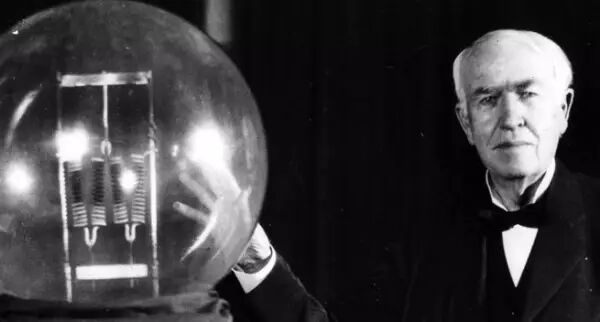
I participated in a discussion about the Internet in 1996, in a room in a technology building with seventeen or eighteen people. We held a meeting where experts and scholars discussed the significant impact of the Internet on the future and what measures we should take to manage and control it. I was puzzled; was the Internet already around in 1996? As a result, none of the concerns raised in that meeting have materialized today, while the issues we should have worried about have emerged. Therefore, I believe that today we are only imagining the future of big data, cloud computing, and the Internet of Things. I think humanity has the wisdom to solve these problems.
Today, our entire country advocates innovation. The foundation of innovation is product innovation, the middle layer is technological innovation, and the highest layer is institutional innovation. It is easy to talk about innovation, but the ability to manage and govern innovation is severely lacking. Therefore, today we are discussing the development of the Internet of Things. If enterprises are a strong productive force, they are a strong driving force, but the government must establish good production relationships to adapt to the development of such productive forces. This may be what we need most in the future—using new methods to govern innovation, manage innovation, guide innovation, and protect innovation.
We must avoid various red flag laws. In 1896, the UK introduced a motor vehicle act. The motor vehicle was invented in the UK, but after the car came out, countless people opposed it because cars would replace many coachmen’s jobs. At that time, coachmen were considered white-collar workers, doing skilled work. If cars came out, they would quickly eliminate coachmen’s jobs. Therefore, all the coachmen protested in the streets, just like today, when it is said that the physical economy is being crushed by the Internet economy. The result of the protests was that the government enacted a red flag law, requiring a person to walk in front of the car waving a flag, and the speed limit was set at seven miles per hour, never to exceed the speed of a horse-drawn carriage. Thirty years later, the UK abolished the red flag law, which caused the UK to miss the automotive industry, allowing Germany and France to rise. The United States seized the automotive industry, making it the first country on wheels, subsequently driving the entire oil economy’s development.
Today, we must be vigilant against red flag laws regarding the future of the Internet of Things and various future policies. We should not think we are better than others. No one is an expert on the future; we are all experts of yesterday. We can only explore the future.
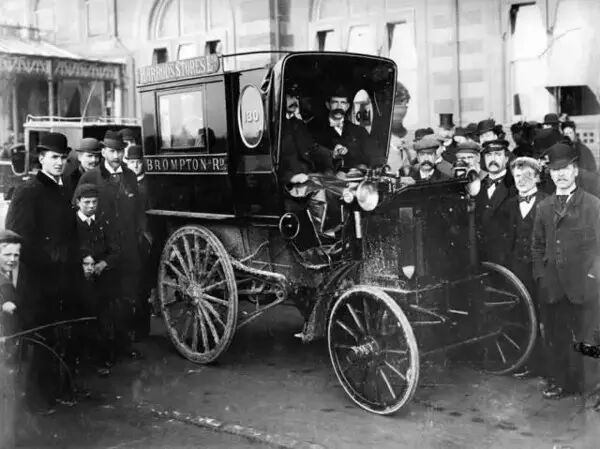
We must believe in ourselves, believe in humanity, and believe in our children. They will find ways to solve these problems. Sometimes, too many regulations prevent us from moving forward. One important reason why Europe does not have large Internet companies is that they have too many laws and regulations. They worry too much and ask how to solve this problem and that problem before they even start. Before the Internet even emerged, everyone was discussing privacy and security issues. I believe we cannot solve these problems; what we cannot solve, our children will definitely be able to solve. Because the post-80s, post-90s, and post-00s generations are smarter than us. I believe their responsibilities and commitments are no less than ours.
When mobile phones first came out, we thought that such a small screen could not compare to PCs. Today, mobile phones have computing power that exceeds that of any PC from back then. At that time, we thought that such small text and images on mobile phones could not compare to computers, and computers could not compare to televisions. Each generation surpasses the previous one. If you cannot see it today, it is because your eyes have aged, but the eyes of children have not.(Applause)
My grandfather thought my father was inferior to him because my grandfather learned everything from newspapers, believing that what the newspapers said was true. My father thought the radio was more important; our generation thinks the television is very important; but our children think the Internet is the most important. They do not believe what others say; they want to participate and experience it themselves. Therefore, I believe our children, especially those born after 2000, will find their own solutions.
Humanity has already transitioned from IT to DT. This is not just a difference in words or technology, but a difference in mindset. IT is about making oneself better; IT is about information monopoly, where I know and you do not. DT must learn to share, must learn to be inclusive, and must empower others to become strong so that you can become strong. The trend of the entire world is moving towards inclusivity, sharing, and sustainability. Therefore, to achieve communism, we must first achieve sharing.
From this perspective, we see many issues—about cross-border thinking. Everyone thinks that cross-border is a novel thing now. I can say that twenty years from now, not crossing borders will be a novel thing. Alibaba enters that field not out of greed, but because data must be interconnected, wisdom must be connected, and culture must communicate. The Internet has no boundaries; if the Internet has boundaries, it is merely a tool. Electricity is not limited to the plastic industry; it can also be used in the steel industry. Therefore, only boundary-less thinking is the true future; this is the real meaning of the Internet.
Competition between humans and machines is frightening, but humans must have their confidence. Machines will never defeat humanity, but the powerful forces developed by machines in the next twenty or thirty years will have a huge impact on humanity. Humans must understand what they can do. For the past one or two hundred years, humanity has believed it can do anything. However, in the future, machines will replace many of the things we thought we could do, and we will feel a sense of loss. But I want to tell everyone that humanity will definitely triumph over machines.
Furthermore, the entire Internet of Things, big computing, and big data will become the infrastructure of our society, becoming production materials, productive forces, and production relationships, which will have a far greater impact on society than we can imagine.
In the next thirty years, starting with new retail, new manufacturing will also come quickly, and the financial industry will follow. However, the process of impact will not be smooth sailing. The purpose of the impact is not to eliminate anyone; the purpose of the impact is to force market reform. Therefore, we have talked about transformation and upgrading for many years, and the documents issued are thicker than the complete works of Shakespeare, but what results have we achieved? They are not significant! There must be market forces, there must be technological forces, and there must be “catfish” like us to force market progress. This is the responsibility and commitment of large Internet companies, not just for profit, but out of responsibility.
I have always believed that today is difficult, tomorrow will be even more difficult, but the future is bright.
Today, no company is happy. Everyone should not think that Internet companies are doing well while traditional entities are not. I want to tell you that very few Internet companies are truly profitable, and no more than five companies make big profits. However, there are still many good companies in the physical economy. It is not that the physical economy is bad; it is that your physical economy is not good. Today, there are still many good physical enterprises in the world. Any enterprise that cannot adapt to the future, technological trends, or future thinking must be eliminated. The purpose of transformation and upgrading is not for everyone to sit comfortably; the purpose of transformation and upgrading is to make good enterprises better and to eliminate bad enterprises. This is the true purpose of transformation and upgrading, the true purpose of development.
In the future, all programmed jobs will be eliminated. Yesterday, a large number of jobs, the best jobs, will be lost. We now say that big data requires many analysts. I tell you, big data will eliminate all analysts. No analyst can analyze big data; analysts can only analyze information, not data. If you learn a data analysis job today, thinking you have found your future, I tell you, there is no future!
In the future, humans should live more like humans, and machines should live more like machines. Of course, as machines replace many jobs, what about human jobs? You do not need to worry too much. I believe that in the next twenty years, it will be normal for people to work only four or five hours a day and three days a week, and you will adapt to it. You may even feel that you do not have enough time. This is like our ancestors; our grandparents worked sixteen hours a day in the fields, and they felt very busy. Now we work eight hours a day and rest two days a week, and we feel that time is not enough. Therefore, in the future world, we may work four hours a day, and we will be on the move. In the past, you may have only visited thirty cities in your lifetime; in the future, you may visit three hundred cities, always on the road.
Therefore, globalization is unstoppable. The moving world does not refer to mobile phones, but to the movement of data that can transcend everything.
In the future, many industries will worry. I tell you, worrying is useless. What we need to do is seize the time to change for the future. If we handle the changes well, humanity will become better and better; if we handle the changes poorly, our suffering will increase, but the future is still bright.
The power of the first technological revolution was so fierce that it caused the First World War; the second technological revolution caused wars again. When discussing abroad, many foreigners ask me, “As China becomes stronger and becomes a world economic power, will you invade others like the United States? Will you become the world police like the United States?” I said that our Chinese culture is different. Confucianism, Buddhism, and Taoism teach us that Confucianism teaches people to change their behavior to adapt to society; Taoism teaches people to change their behavior to use the laws of nature; and Buddhism teaches people to change their behavior to adapt to the development of their inner world. The Chinese nation has cultivated grain in the Yangtze and Yellow River basins. We have enough food and do not think about robbing others; instead, we think about protecting ourselves. The first thought is to build the Great Wall well. We think about defense. The nomadic tribes in the northern cold belt always lack food, and offense becomes their main focus. Therefore, one piece of land nurtures one group of people. Based on this thinking, how will humanity learn to cooperate and win-win in the future? This involves strategies of offense and defense, the yin and yang way, and the way of compliance. This is what we need to think about today.
I would like to express my gratitude because the Internet connects everything, and it will truly lead us into the data era. It will truly enable our computing power, cloud capabilities, and artificial intelligence to become possible. The Internet of Everything, no matter how powerful the machine is, without raw materials, it will run empty. Everything connected will exceed our imagination. I urge everyone to maintain the journey of innovation, encourage innovation, and learn to innovate independently. We must also change; only in this way will society become better. Thank you all.

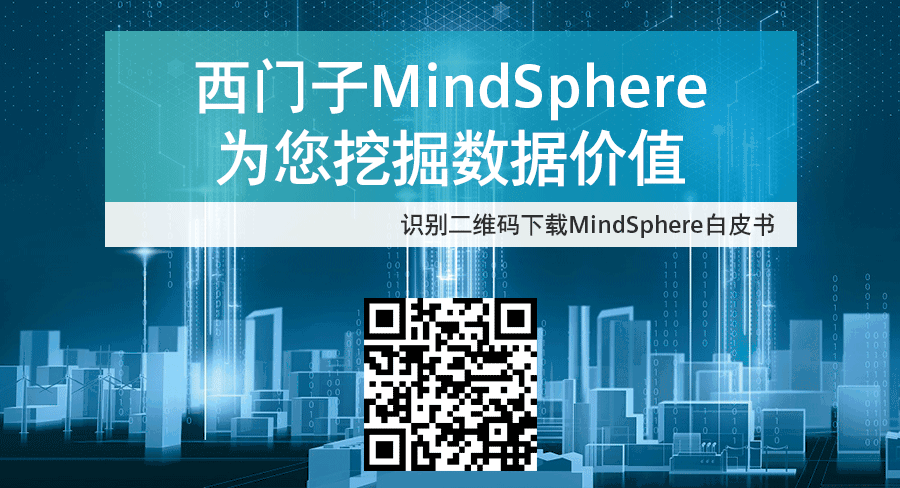
Scan the QR code or click on the end of the article to download the MindSphere white paper

Previous hot articles (click on the article title to read directly):
-
“How Difficult Is It to Make an Intelligent Lock for Shared Bicycles?”
-
“Cognitive Computing, Blockchain IoT, IoT Security… Those Who Understand Will Control the Future”
-
“KUKA, ABB, Fanuc, Yaskawa, Four Major Industrial Robot Giants Have Long Been Stationed in the IoT Field”
-
“[Heavyweight] IoT Industry Panorama Report, The First Domestic IoT Industry Two-Dimensional Perspective Panorama”
-
“A Cartoon Explains: Besides WiFi and Bluetooth, What Can the Recently Popular NB-IoT Do?”
-
“A Cartoon Explains: Behind NB-IoT, What Is the LoRa That Everyone Is Talking About?”
